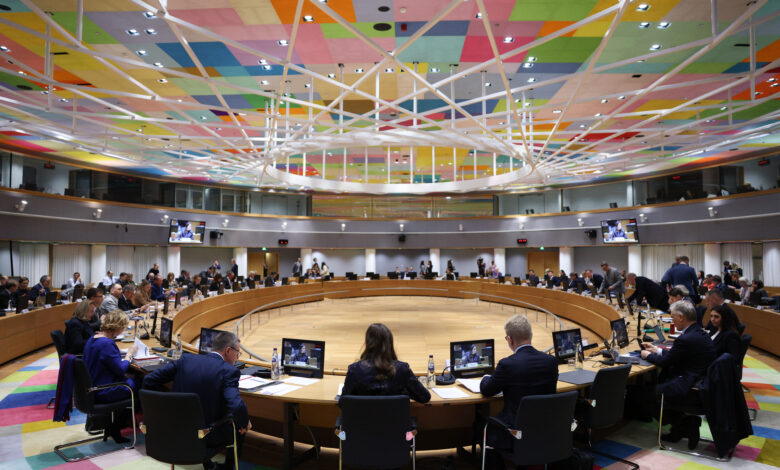
EU Council Approves New Rules for Visa-Free Suspension Amid Concerns Over Georgia
The Council of the EU on November 17 approved new rules making it easier to suspend visa-free travel for citizens of third countries, following the European Parliament’s October 7 endorsement. The new regulations are expected to enter into force in December, 20 days after their publication in the EU’s Official Journal.
“The amended rules will allow the EU to react quicker and more vigorously to situations where visa-free travel is being abused or works against its interests,” the Council of the EU said in a press release.
As the new grounds for triggering the suspension mechanism include a deterioration in a country’s relations with the EU, including in cases of human rights violations, concerns have grown that Georgia, which has enjoyed visa-free travel to the bloc since 2017, could be among the first targets amid what many view as the ruling Georgian Dream government’s authoritarian drift.
The regulation also lowers the threshold for activating the suspension mechanism. Under the new rules, a 30% increase, rather than the previous 50%, in refused entries, overstays, asylum applications, or serious criminal offenses by nationals of a visa-free country can trigger the process.
The initial suspension period will be extended to 12 months, up from the previous 9, with the possibility of a further 24-month extension instead of the earlier 18 months. The press release noted, “This longer temporary suspension phase will allow the EU to engage with the third country in question to remedy the circumstances that led to the suspension (before the visa-free regime can be permanently revoked.”
“The new mechanism also foresees a targeted approach to ending the visa exemption,” the press release said, “Whereas currently all citizens of a country are affected by the suspension of the visa-free regime when the initial period is being extended, under the new rules, the additional 24-month suspension phase would not automatically affect the entire population.”
“Instead, the EU could decide to (continue) targeting government officials and diplomats.”
HR/VP Kaja Kallas said after the October 20 Foreign Affairs Council meeting in Luxembourg that in Georgia, “some groups” may be targeted under the new rules.
In January, the EU suspended visa-free travel for Georgia’s diplomatic passport holders, but only at least ten member states have applied the decision in practice so far.
Today’s General Affairs Council came two weeks after the European Commission released its Enlargement Report, which sharply criticized Georgia for backsliding across nearly all areas and described it as a “candidate country in name only.” Several leaders commented on Georgia ahead of the meeting in Brussels.
Benjamin Haddad, Minister Delegate for Europe of France, said, “It’s very unfortunate to see that the behaviour today of Georgian Dream […] is cutting Georgia from its European path, and I think this is a path supported by the vast majority of the Georgian population.” Asked about a possible suspension of visa-free travel for Georgia, he said, “If Georgian Dream continues on this path, unfortunately, it will lead to measures that will further away Georgia from Europe.”
Marie Bjerre, Minister of European Affairs of Denmark, said, “Georgia has unfortunately chosen not to go with the European path, and day by day, they are moving further away from the EU.”
Jessica Rosencrantz, Minister for EU Affairs of Sweden, said, “We welcome the Georgian people’s aspiration to join the EU and to become a member of the European family. But we equally see from the Georgian government side that there is no real ambition or interest in actually fulfilling or going down that path or doing the reforms necessary. Rather, we see that things are going in the wrong direction, and therefore, this is not a process moving forward. But to the Georgian people, my message is very clear that you belong to the European family, but the government needs to act on the reforms necessary.”
In July, the European Commission warned Georgia to meet eight reform conditions by August, including repealing restrictive laws and aligning with the EU visa policy. In late August, the Georgian Ministry of Foreign Affairs sent a letter to the European Commission that, according to the RFE/RL, failed to address the EU’s concerns.
Tbilisi has repeatedly accused Brussels of using the visa-free regime as a “blackmail tool.”
Also Read:
- 22/07/2025 – Kobakhidze Downplays Concerns Over EU Visa-Free Suspension as Mere Fear of “Visa Lines”
- 18/07/2025 – Kobakhidze Says ‘Global War Party’ Uses EU Visa Threat to Open Second Front in Georgia